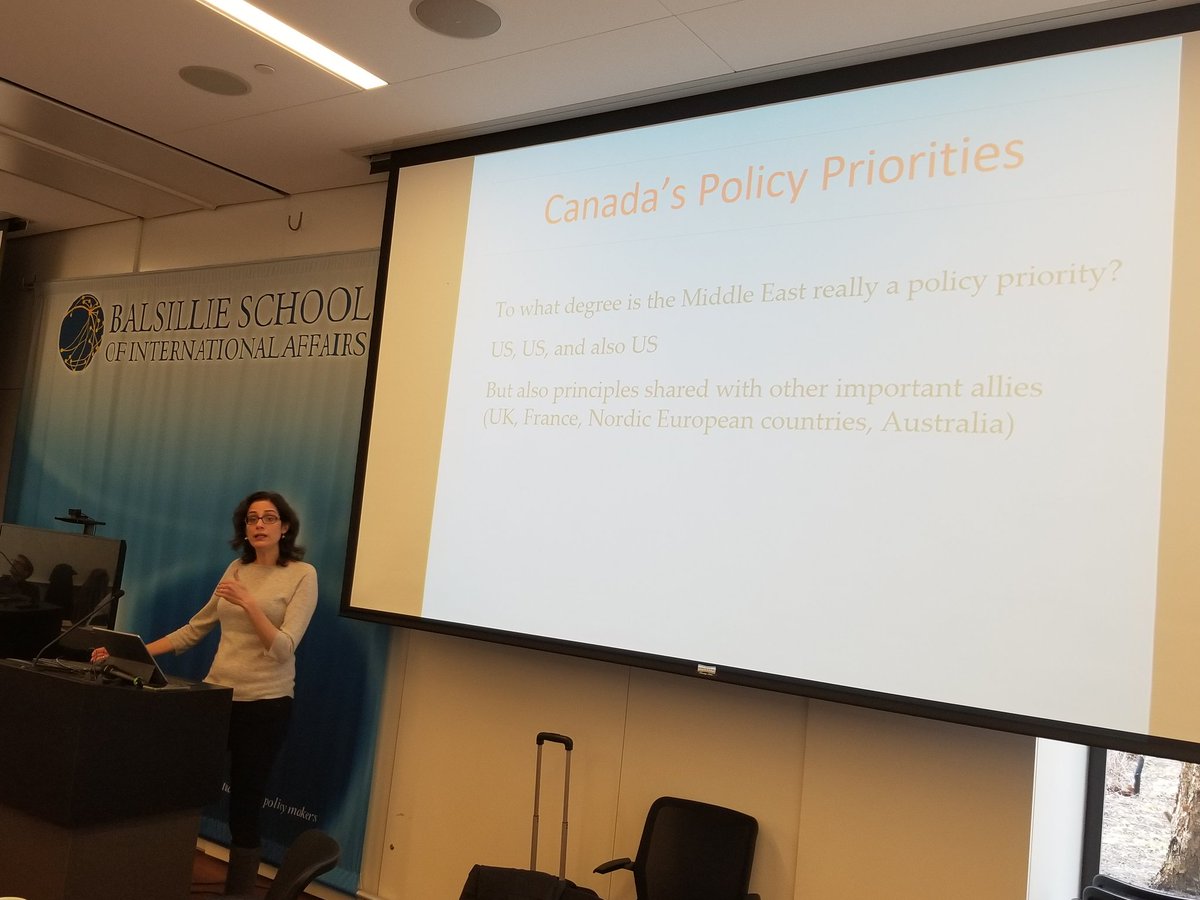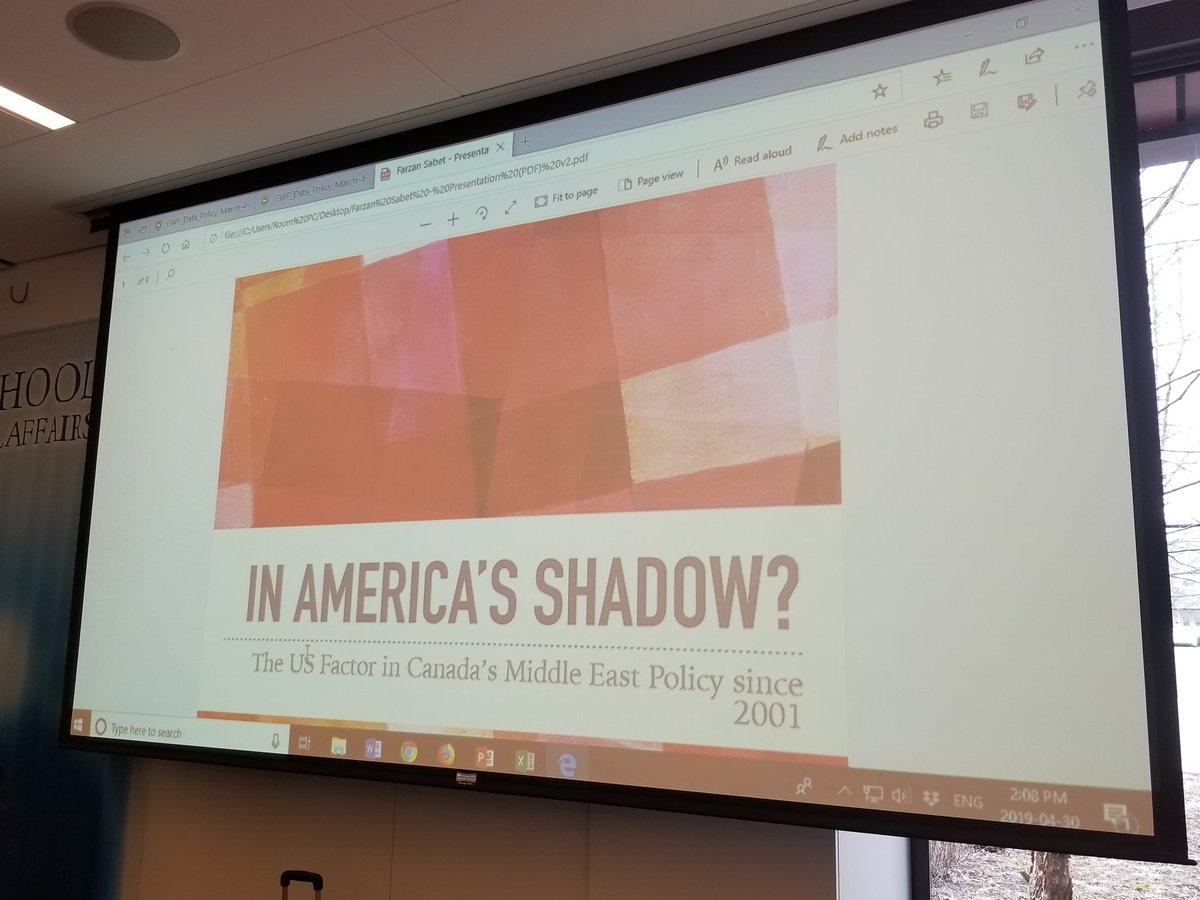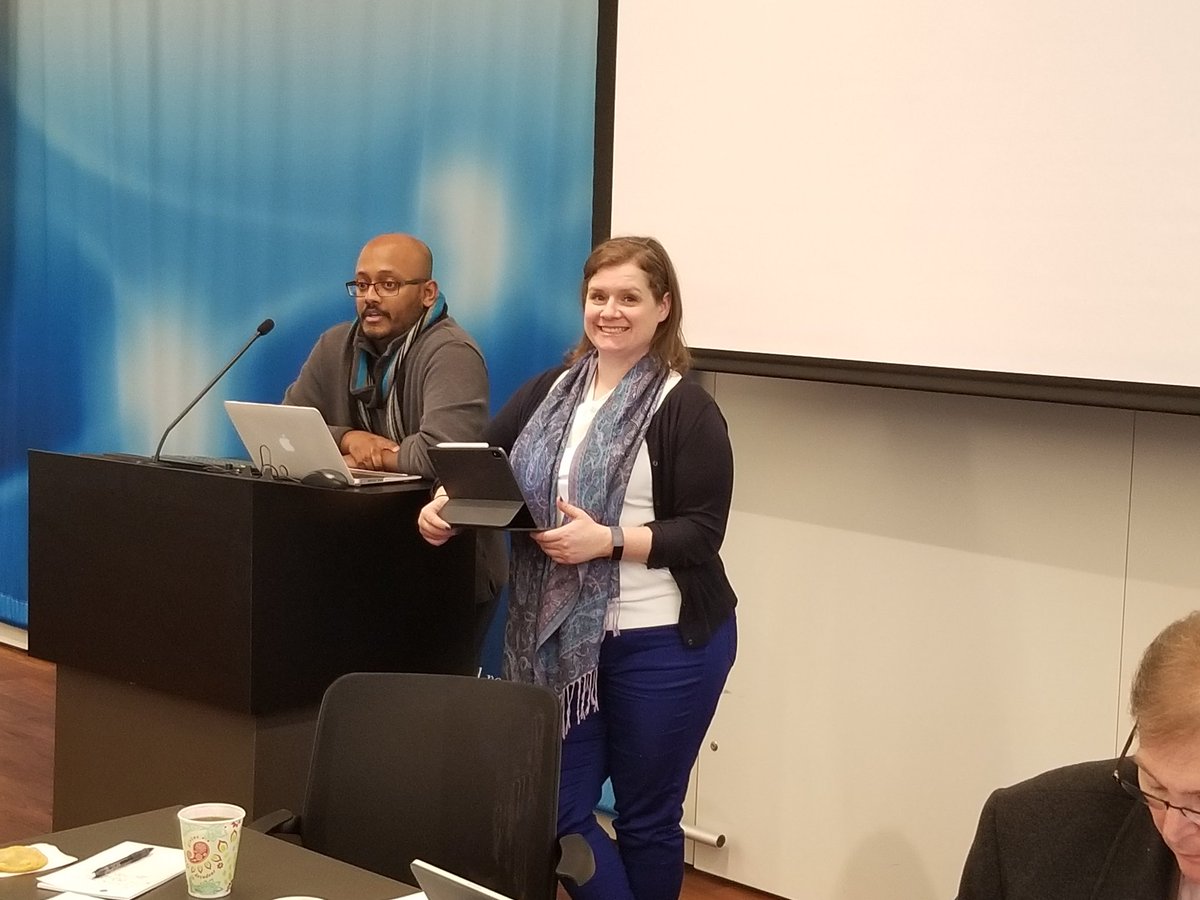-Canada has not had a consistent policy over the years, but it must engage with political Islam
-things did not change much from harper to trudeau: canada mostly supports Sisi.
-key point: public debates too often take a simplistic, limited view of political islam, reducing it it to militant politics.

-limited interest
-somewhere between Harper (very pro Israel) and Chretien
-interesting: Trudeau's voting record at the UN is MORE proIsrael than Harper's (voting against 87% of resolutions condemning israel as opposed to 61% for Harper.












